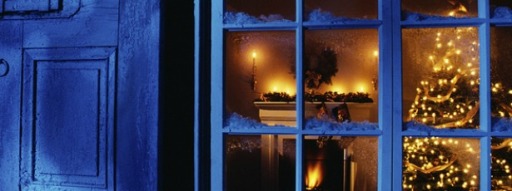YAN: Yet Another Nostalgia
Nostalgia, 향수’병’ 鄕愁病… 허~ 이것도 이제 보니 병 病 그러니까 주로 ‘정신 질병’이다. 몸과 마음, 특히 마음이 아픈, 분명한 병은 병인 모양이다. 나에게는 특히 친숙한 이 ‘병’, 약 7 년 전에 우연히 신문기사 New York Times 에서 이것에 관한 ‘연구 결과’를 본 적이 있었고 그것에 대해서 나의 생각을 쓴 적이 있었다. 당시에 이런 것도 연구 대상이 되는구나 의아하고 재미있기도 했다.
유별나게 아련한 감정에 자주 휩쓸리는 나의 모습을 숨기고 사는 것도 쉽지 않은 것이 나의 중년 이후의 모습이기도 했다. 고향도 그렇지만 지난 시절을 유별나게 그리는 것, 간혹 이것 병이 아닐까 하고 생각도 해긴 했다. 그러다가 그 ‘과학적 연구’의 기사를 읽고 많이 위안을 받고 이해를 하게 되었다. 내성적인 성격과 향수병에 쉽게 걸리는 type은 흔히 우려하는 mental disorder는 아닌 모양이었다.
그러다가 이번에는 더욱 재미있는 기사를 읽게 되었다. 이번에는 지나간 Atlantic Magazine 이 그 출처가 되었다. 기사의 제목이 유별나게 흥미롭고 재미있었다. 이름하여: Study: Nostalgia Makes Us Warm, and Cold Makes Us Nostalgic… 그러니까.. “향수’병’은 우리를 따뜻하게 하고, 추위는 우리에게 향수병은 가져다 준다”… 더욱 흥미로운 것은 부제 副題다. ‘쉬지 않고 지나간 12월의 추억에 빠지면 집의 난방비가 줄어든다’. 와~ 과연 무슨 뜻일까…
대강 짐작은 간다. 포근한 지난날의 아름다운 추억에 빠지면, 그러니까 ‘향수병에 빠지면 몸도 따라서 따뜻해 지고, 또한 추위는 우리에게 향수병을 가져다 주고, 따라서 난방비가 줄어든다’ 는 논리다. 조금은 웃기는 듯 하지만 나는 150% 동감이 간다. 과학적으로 증명하기는 쉽지 않겠지만.
하지만 이 Atlantic의 기사는 과학적으로 그것을 증명하고자 시도한 것이고 그들의 가설은 충분히 이유가 있는 것이었다. 이 연구의 결론은: ‘춥거나, 슬프거나 외로울 때, 특히 holiday season에는 지나간 행복했던 시절의 생각에 빠져라’ 는 것이다. 따라서 나는 앞으로 죽을 때까지 그렇게 돌아가고 싶은 아름다운 시절의 추억을 즐기며 따뜻하게 살고 싶고 난방비 절약에도 도움을 줄 것이다.
*************
Study: Nostalgia Makes Us Warm, and Cold Makes Us Nostalgic
Lindsay Abrams December 4, 2012
Non-stop reminiscing about December past may cut down your gas bill.
PROBLEM: Why do we get so nostalgic in December? Smell, touch, and music have all be proven to evoke it, and the holidays have all three (though, apologies if you’re not being touched enough this seasons.) While they can spur us to give love to our fellow men, or remind of us what’s important in life, they may also serve a more utilitarian function.
METHOLOGOGY: Researchers at the University of Southampton recruited college students to participate in five relatively basic studies centering around nostalgia to warmth. Some of them would probably make great holiday party games.
- Participants were asked to keep a journal of nostalgic feelings over 30 days, which were then compared to each day’s weather.
- Participants were placed in rooms ranging from cold to comfortable to over-heated, and then asked how nostalgic they felt.
- In an online study, participants listened to music and were asked about how nostalgic it made them feel, along with how warm they currently felt.
- Participants were placed in a cold room and instructed to reflect on nostalgic or ordinary memories, and to then guess the room’s temperature.
- After being asked to recall a nostalgic or ordinary memory, participants placed their hands in iced water and were instructed to keep them there for as long as they possibly could.
Different participants were used for each study.
RESULTS:
Success on all fronts. The journalers recorded more nostalgic thoughts on colder days. The people in cold rooms rated highest on nostalgia scales. The people for whom the music evoked the most sentimentality reported feeling warmer. The people told to think nostalgic thoughts while in the cold room had the warmest estimates for what the temperate actually was. And the unlucky participants in the ice water experiment lasted longest when they focused on nostalgic memories.
CONCLUSION: Nostalgia appears to both to be evoked in chilly atmosphere and to have a protective effect against the cold – either by making us feel warmer or at least increasing our tolerance.
IMPLICATIONS: If you’re cold, sad, and lonely this holiday season, lose yourself in memories of happier times. That will take care of at least one of your problems.
The full study, “Heartwarming Memories: Nostalgia Maintains Physiological Comfort,” was published in the journal Emotion.
LINDSAY ABRAMS is a former editorial fellow at The Atlantic.

